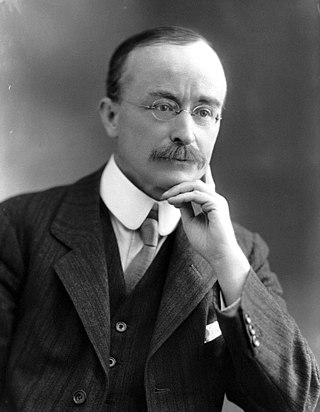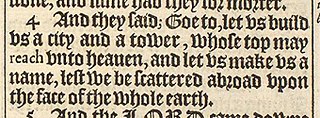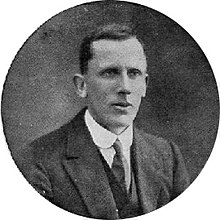
The Complete Plain Words, titled simply Plain Words in its 2014 revision, is a style guide written by Sir Ernest Gowers, published in 1954. It has never been out of print. It comprises expanded and revised versions of two pamphlets that he wrote at the request of HM Treasury, Plain Words (1948) and ABC of Plain Words (1951). The aim of the book is to help officials in their use of English as a tool of their trade. To keep the work relevant for readers in subsequent decades it has been revised by Sir Bruce Fraser in 1973, by Sidney Greenbaum and Janet Whitcut in 1986, and by the original author's great-granddaughter Rebecca Gowers in 2014.

A Dictionary of Modern English Usage (1926), by Henry Watson Fowler (1858–1933), is a style guide to British English usage, pronunciation, and writing. Covering topics such as plurals and literary technique, distinctions among like words, and the use of foreign terms, the dictionary became the standard for other style guides to writing in English. Hence, the 1926 first edition remains in print, along with the 1965 second edition, edited by Ernest Gowers, which was reprinted in 1983 and 1987. The 1996 third edition was re-titled as The New Fowler's Modern English Usage, and revised in 2004, was mostly rewritten by Robert W. Burchfield, as a usage dictionary that incorporated corpus linguistics data; and the 2015 fourth edition, revised and re-titled Fowler's Dictionary of Modern English Usage, was edited by Jeremy Butterfield, as a usage dictionary. Informally, readers refer to the style guide and dictionary as Fowler's Modern English Usage, Fowler, and Fowler's.
Henry Watson Fowler was an English schoolmaster, lexicographer and commentator on the usage of the English language. He is notable for both A Dictionary of Modern English Usage and his work on the Concise Oxford Dictionary, and was described by The Times as "a lexicographical genius".

Colonel Sir Claude Maxwell MacDonald, was a British soldier and diplomat, best known for his service in China and Japan.

Sir William Richard Gowers was a British neurologist, described by Macdonald Critchley in 1949 as "probably the greatest clinical neurologist of all time". He practised at the National Hospital for the Paralysed and Epileptics, Queen Square, London from 1870–1910, ran a consultancy from his home in Queen Anne Street, W1, and lectured at University College Hospital. He published extensively, but is probably best remembered for his two-volume Manual of Diseases of the Nervous System (1886, 1888), affectionately referred to at Queen Square as the Bible of Neurology.
Sir Bruce Donald Fraser was a Scottish civil servant in the United Kingdom.

Sir Malcolm Delevingne, was a British civil servant who worked in the British Home Office from 1892 through his retirement in 1932. He was a significant influence on safety regulations in factories and mines, and was an original member of the League of Nations' Opium Advisory Committee.
The New Year Honours 1952 were appointments by King George VI to various orders and honours to reward and highlight good works by citizens of the British Empire and Commonwealth. They were announced on 1 January 1952 for the British Empire, Australia, New Zealand, Ceylon, and Pakistan to celebrate the past year and mark the beginning of 1952.
The New Year Honours 1967 were appointments in many of the Commonwealth realms of Queen Elizabeth II to various orders and honours to reward and highlight good works by citizens of those countries. They were announced on 1 January 1967 to celebrate the year passed and mark the beginning of 1967.
The King's Birthday Honours 1941 were appointments in the British Empire of King George VI to various orders and honours to reward and highlight good works by citizens of various countries. The appointments were made to celebrate the official birthday of The King, and were published on 6 June 1941.
The 1949 New Year Honours were appointments by many of the Commonwealth realms of King George VI to various orders and honours to reward and highlight good works by citizens of those countries. They were announced in supplements to the London Gazette of 31 December 1948 for the British Empire, New Zealand, India, and Ceylon to celebrate the past year and mark the beginning of 1949.
The 1948 New Year Honours were appointments by many of the Commonwealth realms of King George VI to various orders and honours to reward and highlight good works by citizens of those countries. They were announced on 1 January 1948 for the British Empire and New Zealand to celebrate the past year and mark the beginning of 1948.
The New Year Honours 1926 were appointments by King George V to various orders and honours to reward and highlight good works by members of the British Empire. They were published on 29 December 1925.
The King's Birthday Honours 1932 were appointments by King George V to various orders and honours to reward and highlight good works by members of the British Empire. The appointments were made to celebrate the official birthday of The King. They were published on 3 June 1932.
The King's Birthday Honours 1930 were appointments by King George V to various orders and honours to reward and highlight good works by members of the British Empire. The appointments were made to celebrate the official birthday of The King. They were published on 30 May 1930.
The King's Birthday Honours 1929 were appointments by King George V to various orders and honours to reward and highlight good works by members of the British Empire. The appointments were made to celebrate the official birthday of The King. They were published on 3 June 1929.
The 1926 Birthday Honours were appointments by King George V to various orders and honours to reward and highlight good works by citizens of the British Empire. The appointments were made to celebrate the official birthday of The King on 3 June, but it was announced on 20 May that due to the national strike, the King had approved the Prime Minister's recommendation to delay the publication of the list until 3 July 1926. The honours were effective to 5 June 1926. Per standard practice, Sir Paul Chater, who died 27 May 1926, still received the honour of Knight Commander of the Order of the British Empire as he would have received the honour if he had survived.
The 1921 Birthday Honours were appointments by King George V to various orders and honours to reward and highlight good works by citizens of the British Empire. The appointments were made to celebrate the official birthday of the King, and were published on 3 and 4 June 1921.
The 1928 Birthday Honours were appointments by King George V to various orders and honours to reward and highlight good works by citizens of the British Empire. The appointments were made to celebrate the official birthday of The King, and were published in The London Gazette on 4 June 1928.

The inanimate whose refers to the use in English of the relative pronoun whose with non-personal antecedents, as in: "That's the car whose alarm keeps waking us up at night." The construction is also known as the whose inanimate, non-personal whose, and neuter whose.







